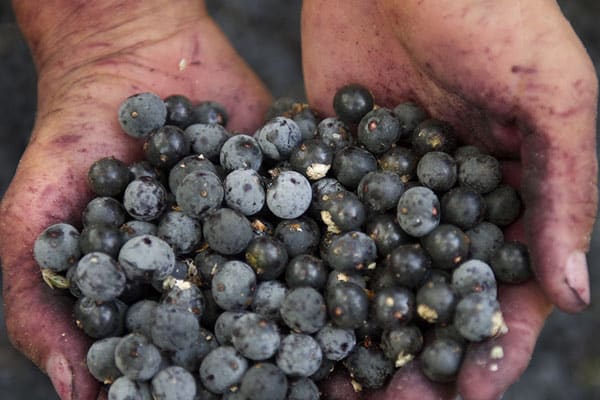IITian TSK Reddy is an IFS officer from the 1987 batch. He is APCCF posted as managing director of the newly created Maharashtra Bamboo Development Board (MBDB) at Nagpur. With lot of stakes in bamboo farming on private land, especially after withdrawal of transit pass (TP) condition, many farmers showed keen interest in bamboo plantations during the recently concluded Agro Vision 2017.
Reddy is recipient of the Prime Minister Award for excellence in civil administration in 2013 for implementing vocational skill training program in Gadchiroli. This project was selected from 152 projects received from other states of the country for PM award. In 2012, agarbatti projects set by him in Gadchiroli to benefit tribals won accolades. He has run several livelihood projects to help stakeholders during his tenure.
TOI spoke with Reddy about the massive plans of MBDB to boost bamboo economy. Excerpts from the interview ...
Q. Bamboo continues to be a neglected sector. What has MBDB been doing over a year since it was set up?
A. Bamboo's potential has not been fully tapped in Vidarbha. MBDB was formed on August 6, 2016 but the role of the board is not confined to production or doing business, it is a facilitator. Our aim is to create economic security to farmers and do value addition to bamboo.
Q. Western Maharashtra seems to be doing better than Vidarbha.
A. Bamboo as agro forestry crop was started in Sindhudurg and Bor in 2004. Today, farmers there are selling 3,000 truckloads of bamboo annually and preferring growing bamboo over cashew nuts and Alphonso mangoes. In Vidarbha, bamboo is cut as per working plan prescriptions and sold in depots as raw poles. Value addition to bamboo is a neglected area.
Q. What is MBDB's plan for Vidarbha?
A. We are encouraging farmers to grow bamboo on private land. Now no TP is needed for growing and felling and transporting bamboo. Over 700 farmers from Gondia and Nagpur districts have shown interest to grow bamboo on 1,035 hectare land owned by them. A two-year diploma in bamboo technology has been started in Chandrapur. The course is approved by Maharashtra State Board of Technical Education (MSBTE) and will bring jobs to youths.
Q. But will only growing bamboo help? What about the market?
A. To ensure assured sales, we have signed a MoU with Ballarpur Industries. It is ready to buy entire bamboo on private lands for minimum support price of @Rs 3,500 per green metric tonne. Besides, we are working on financial support to farmers from NABARD & SBI with a moratorium of three years ie the loan repayment will begin after third year when bamboo will yield money.
Q. Extraction cost towards labour is too high, so what will the farmer get?
A. For manual removal of 'Manvel' species it is Rs8 per bamboo and for 'Katang' it comes to Rs15. We are bringing mechanization to bamboo extraction technology. There are saws costing Rs28000 whose blades are specially designed to cut bamboo. We will train youngsters who will cut this bamboo for farmers.
Q. Which bamboo species are suitable to grow here?
A. The MBDB has selected Maharashtra's 3 native species Manvel, Manga and Katang and 5 north-east species — Balcoa, Brandisii, Asper, Nutans, and Tulda. Barring Tulda, all are big-sized. These are among 16 species selected by National Bamboo Mission (NBM) and approved and recommended as commercially cultivable bamboo species in the country and have yielded good results elsewhere in the country. These species can be grown even on water logged and saline lands.
Q. What about the economics?
A. The five species are developed by tissue culture. We have floated tenders and finalized three labs at Bengaluru, Jabalpur and Indore to supply bamboo seedlings. It will cost Rs25-27 per seedlings. Initially we are focusing on Balcoa species.
Q. Why are you promoting Balcoa?
A. It has been scientifically grown on farmers' land and has also been tried and tested. The Balcoa is also known as Bhima bamboo. Plantation of 330 plants per acre costs Rs2 lakh for three years. Till third year there are no returns but in 4th year the yield is 18 tonnes, 5th year (28 tonnes), 6th year onwards (42 tonnes). Returns will depend on market rate at that time. Balcoa is a sterile species and doesn't die even after flowering.
Q. Do you think farmers will come forward for bamboo farming?
A. Bamboo is the 'green gold' of 21st century. With its multiple uses, it is a gift of nature. Unlike 'Green Revolution', which chiefly resolved the food supply issue some decades ago, the growing attention of society and recent developments on bamboo will be referred as the 'Golden Revolution' in the years to come. The ongoing golden revolution will have to resolve wood supply problems in the future and reduce environment pressure on forests and Vidarbha has great advantage.
Q. How will Vidarbha gain when most of its bamboo has gone under PESA, FRA and CFR?
A. We still have bamboo on 4.75 lakh hectare area in state. Of this 80% (3.30 lakh hectare) alone is in Gadchiroli.
Q. The board doesn't have technology and expertise to achieve goals?
A: Our role is of facilitator and that's why we have tied up for bamboo technology transfer with leading institutes like IIT, Mumbai, VNIT & LIT at Nagpur, National Institute of Design (NID), National Institute of Fashion Technology (NIFT), Indian Plywood Industries Research & Training (IPIRT), Bengaluru, and Institute of Wood Science & Technology (IWST). All these will help us for value addition of bamboo, treatment, fibre extraction and other usages.
Q. Can bamboo farming be a solution to farmers' suicide?
A. Yes, but we have not yet approached suicide-prone Yavatmal for bamboo farming. Over 26 value added products can be made from bamboo. We can guide the farmers to work on these products. For example, India needs 35,000 tonnes round sticks of agarbatti but produces only 3,000 tonnes. This is the big market which Vidarbha can tap.
Q. What's the future of the bamboo bicycle that you have produced?
A. Yes. It has been developed by the Bamboo Research Training Centre (BRTC), Chandrapur. The cycle costs Rs8,000. Its frame is only made of bamboo while joints are of metal. We have referred it to VNIT and LIT for testing before going in for bulk production following which the cost will come down by about 50%.
Q. What are the challenges before the board?
A. One of the challenges is treatment of bamboo. Untreated bamboo material has a four-year life. Hence, we plan to set up vacuum pressure treatment plants in 11 forest circles. Secondly, we want to promote energy from bamboo. We will prepare proposal for installing such plants for own energy consumption. Another challenge is to motivate farmers to grow bamboo. Besides, we want to make it a $19 billion industry like China.
Reddy is recipient of the Prime Minister Award for excellence in civil administration in 2013 for implementing vocational skill training program in Gadchiroli. This project was selected from 152 projects received from other states of the country for PM award. In 2012, agarbatti projects set by him in Gadchiroli to benefit tribals won accolades. He has run several livelihood projects to help stakeholders during his tenure.
TOI spoke with Reddy about the massive plans of MBDB to boost bamboo economy. Excerpts from the interview ...
Q. Bamboo continues to be a neglected sector. What has MBDB been doing over a year since it was set up?
A. Bamboo's potential has not been fully tapped in Vidarbha. MBDB was formed on August 6, 2016 but the role of the board is not confined to production or doing business, it is a facilitator. Our aim is to create economic security to farmers and do value addition to bamboo.
Q. Western Maharashtra seems to be doing better than Vidarbha.
A. Bamboo as agro forestry crop was started in Sindhudurg and Bor in 2004. Today, farmers there are selling 3,000 truckloads of bamboo annually and preferring growing bamboo over cashew nuts and Alphonso mangoes. In Vidarbha, bamboo is cut as per working plan prescriptions and sold in depots as raw poles. Value addition to bamboo is a neglected area.
Q. What is MBDB's plan for Vidarbha?
A. We are encouraging farmers to grow bamboo on private land. Now no TP is needed for growing and felling and transporting bamboo. Over 700 farmers from Gondia and Nagpur districts have shown interest to grow bamboo on 1,035 hectare land owned by them. A two-year diploma in bamboo technology has been started in Chandrapur. The course is approved by Maharashtra State Board of Technical Education (MSBTE) and will bring jobs to youths.
Q. But will only growing bamboo help? What about the market?
A. To ensure assured sales, we have signed a MoU with Ballarpur Industries. It is ready to buy entire bamboo on private lands for minimum support price of @Rs 3,500 per green metric tonne. Besides, we are working on financial support to farmers from NABARD & SBI with a moratorium of three years ie the loan repayment will begin after third year when bamboo will yield money.
Q. Extraction cost towards labour is too high, so what will the farmer get?
A. For manual removal of 'Manvel' species it is Rs8 per bamboo and for 'Katang' it comes to Rs15. We are bringing mechanization to bamboo extraction technology. There are saws costing Rs28000 whose blades are specially designed to cut bamboo. We will train youngsters who will cut this bamboo for farmers.
Q. Which bamboo species are suitable to grow here?
A. The MBDB has selected Maharashtra's 3 native species Manvel, Manga and Katang and 5 north-east species — Balcoa, Brandisii, Asper, Nutans, and Tulda. Barring Tulda, all are big-sized. These are among 16 species selected by National Bamboo Mission (NBM) and approved and recommended as commercially cultivable bamboo species in the country and have yielded good results elsewhere in the country. These species can be grown even on water logged and saline lands.
Q. What about the economics?
A. The five species are developed by tissue culture. We have floated tenders and finalized three labs at Bengaluru, Jabalpur and Indore to supply bamboo seedlings. It will cost Rs25-27 per seedlings. Initially we are focusing on Balcoa species.
Q. Why are you promoting Balcoa?
A. It has been scientifically grown on farmers' land and has also been tried and tested. The Balcoa is also known as Bhima bamboo. Plantation of 330 plants per acre costs Rs2 lakh for three years. Till third year there are no returns but in 4th year the yield is 18 tonnes, 5th year (28 tonnes), 6th year onwards (42 tonnes). Returns will depend on market rate at that time. Balcoa is a sterile species and doesn't die even after flowering.
Q. Do you think farmers will come forward for bamboo farming?
A. Bamboo is the 'green gold' of 21st century. With its multiple uses, it is a gift of nature. Unlike 'Green Revolution', which chiefly resolved the food supply issue some decades ago, the growing attention of society and recent developments on bamboo will be referred as the 'Golden Revolution' in the years to come. The ongoing golden revolution will have to resolve wood supply problems in the future and reduce environment pressure on forests and Vidarbha has great advantage.
Q. How will Vidarbha gain when most of its bamboo has gone under PESA, FRA and CFR?
A. We still have bamboo on 4.75 lakh hectare area in state. Of this 80% (3.30 lakh hectare) alone is in Gadchiroli.
Q. The board doesn't have technology and expertise to achieve goals?
A: Our role is of facilitator and that's why we have tied up for bamboo technology transfer with leading institutes like IIT, Mumbai, VNIT & LIT at Nagpur, National Institute of Design (NID), National Institute of Fashion Technology (NIFT), Indian Plywood Industries Research & Training (IPIRT), Bengaluru, and Institute of Wood Science & Technology (IWST). All these will help us for value addition of bamboo, treatment, fibre extraction and other usages.
Q. Can bamboo farming be a solution to farmers' suicide?
A. Yes, but we have not yet approached suicide-prone Yavatmal for bamboo farming. Over 26 value added products can be made from bamboo. We can guide the farmers to work on these products. For example, India needs 35,000 tonnes round sticks of agarbatti but produces only 3,000 tonnes. This is the big market which Vidarbha can tap.
Q. What's the future of the bamboo bicycle that you have produced?
A. Yes. It has been developed by the Bamboo Research Training Centre (BRTC), Chandrapur. The cycle costs Rs8,000. Its frame is only made of bamboo while joints are of metal. We have referred it to VNIT and LIT for testing before going in for bulk production following which the cost will come down by about 50%.
Q. What are the challenges before the board?
A. One of the challenges is treatment of bamboo. Untreated bamboo material has a four-year life. Hence, we plan to set up vacuum pressure treatment plants in 11 forest circles. Secondly, we want to promote energy from bamboo. We will prepare proposal for installing such plants for own energy consumption. Another challenge is to motivate farmers to grow bamboo. Besides, we want to make it a $19 billion industry like China.
Get latest news & live updates on the go on your pc with News App. Download The Times of India news app for your device.















